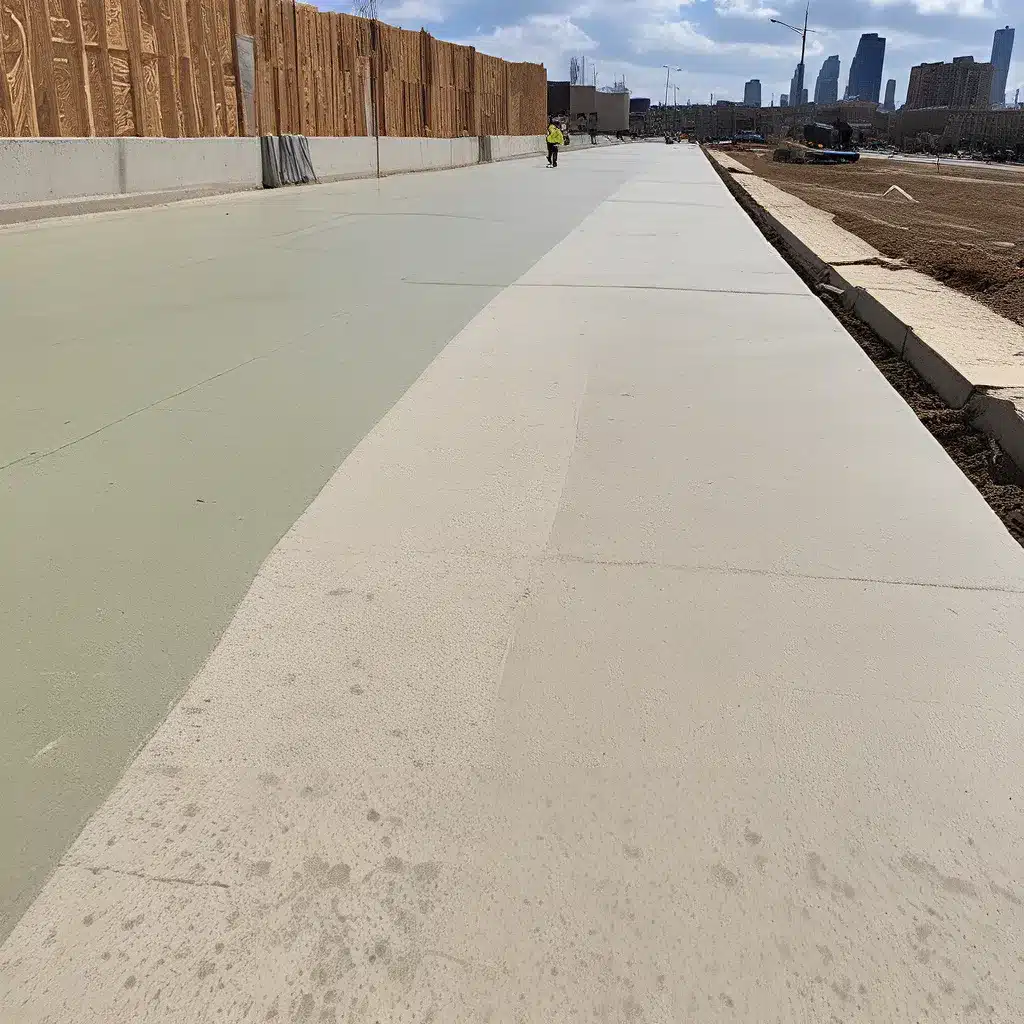
In the heart of the Midwest, Kansas City, Missouri, is leading the charge in the green revolution of concrete contracting. As the demand for sustainable and eco-friendly construction practices continues to grow, concrete contractors in this vibrant city are embracing innovative solutions to reduce the environmental impact of their work.
Sustainable Concrete Mixes: The Future of Construction
One of the key areas where Kansas City’s concrete contractors are making strides is in the development of sustainable concrete mixes. Traditional concrete production is known to have a significant carbon footprint, with the manufacturing of cement – a critical component – contributing to a large portion of the industry’s greenhouse gas emissions.
However, local contractors are now experimenting with alternative binders, such as fly ash and ground granulated blast-furnace slag (GGBS), which can partially replace cement in the concrete mix. These supplementary cementitious materials (SCMs) not only reduce the carbon footprint but also improve the durability and long-term performance of the concrete.
Studies have shown that the use of SCMs can lead to a 20-30% reduction in the carbon dioxide emissions associated with concrete production, making it a crucial step towards a more sustainable future.
Water Conservation and Recycling Initiatives
Water management is another critical aspect of sustainable concrete contracting, and Kansas City’s contractors are leading the charge in this area as well. By implementing water-efficient practices, such as using reclaimed water for concrete mixing and on-site equipment washing, these businesses are significantly reducing their freshwater consumption.
Moreover, many contractors are now employing concrete recycling techniques, where waste concrete from demolition or construction sites is processed and reused as aggregate in new concrete mixes. This not only diverts waste from landfills but also reduces the need for mining and transporting virgin aggregates, further reducing the environmental impact of concrete production.
Concrete recycling has been shown to have the potential to reduce greenhouse gas emissions by up to 15% compared to traditional concrete production methods, making it a highly effective strategy for Kansas City’s green-minded contractors.
Embracing Alternative Reinforcement Materials
In addition to sustainable concrete mixes and water conservation efforts, Kansas City’s concrete contractors are also exploring the use of alternative reinforcement materials, such as fiberglass-reinforced polymer (FRP) and steel fibers, to replace traditional steel reinforcement.
These innovative materials offer several advantages, including:
- Reduced carbon footprint: The manufacturing of FRP and steel fibers has a lower environmental impact compared to traditional steel reinforcement.
- Corrosion resistance: FRP and steel fibers are less prone to corrosion, which can extend the lifespan of concrete structures and reduce the need for maintenance and repairs.
- Improved durability: These alternative reinforcement materials can enhance the structural integrity and load-bearing capacity of concrete, leading to more resilient and long-lasting constructions.
By embracing these cutting-edge reinforcement solutions, Kansas City’s concrete contractors are contributing to a more sustainable and durable built environment.
Educating Clients and the Community
Alongside their technical innovations, Kansas City’s concrete contractors are also playing a vital role in educating their clients and the local community about the benefits of sustainable concrete practices. They are actively engaging with homeowners, businesses, and municipal authorities to raise awareness and promote the adoption of eco-friendly concrete solutions.
Through informative workshops, project case studies, and industry partnerships, these contractors are demonstrating the long-term cost savings, improved performance, and environmental benefits associated with sustainable concrete contracting. This educational outreach is crucial in fostering a culture of sustainability within the local construction industry and inspiring others to follow in their footsteps.
The Road Ahead: Continuous Innovation and Collaboration
As the green revolution in concrete contracting continues to gain momentum, Kansas City’s concrete contractors are committed to staying at the forefront of this transformation. They are actively investing in research and development to explore even more innovative solutions, such as carbon-absorbing concrete and self-healing concrete technologies.
Moreover, these contractors understand the importance of collaboration and knowledge-sharing within the industry. By partnering with academic institutions, government agencies, and industry associations, they are able to stay informed about the latest advancements, best practices, and emerging trends in sustainable concrete construction.
As homeowners, businesses, and local authorities in Kansas City increasingly prioritize sustainability and environmental responsibility, the concrete contracting industry is rising to the challenge. By embracing innovative technologies, adopting best practices, and educating the community, these forward-thinking contractors are paving the way for a more sustainable and resilient built environment – one project at a time.
If you’re in the Kansas City area and are looking for a concrete contractor who is committed to green and sustainable practices, be sure to visit Concrete Contractor Kansas City to learn more about their services and how they can help you achieve your construction goals while minimizing the environmental impact.

